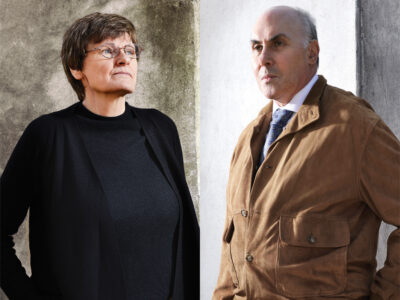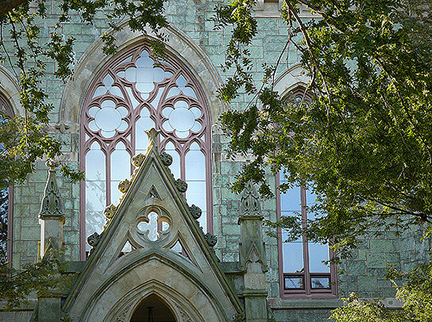
Less than 10 years after serving as executive editor of The Daily Pennsylvanian, Charles Ornstein C’96, now a health reporter at The Los Angeles Times, has reeled in the big one: a Pulitzer Prize. He and three other Times reporters received the honor in the category of public-service journalism this past April as a result of their stories on serious problems at a public Los Angeles hospital. The prize-winning articles were written over the course of 15 months, and detailed rampant neglect and substandard health care at King/Drew Medical Center, the hospital created in South Los Angeles after the Watts riots of 1965. Ornstein discussed the series in an email interview with former DP colleague Jordana Horn Marinoff C’95 L’99.
What inspired the stories that won the Pulitzer?
I have been covering public health and health policy at The Los Angeles Times since I was hired in July 2001. One of the biggest stories on my beat has been the financial crisis bedeviling the public hospital system here. In the spring of 2003, my colleague Tracy Weber and I wrote a front-page article about allegations that patients had died at the largest public hospital because of long waits for care. Our editors encouraged us to look at all of the public hospitals owned by Los Angeles County to determine if there was a disproportionately higher rate of death compared to private hospitals. We did not set out to examine King/Drew, but it became clear to us that King/Drew rated poorly on practically all statistical measures. It had more malpractice than the other hospitals and far more citations from state inspectors, given its size. As we investigated further, we concluded that the hospital was far more dangerous than the public knew.
What were some of the most dramatic revelations?
Errors and neglect by King/Drew’s staff have repeatedly injured or killed patients over more than a decade, a pattern that remains largely unscrutinized and unchecked. Some lapses were never reported to authorities—or even to the victims or their families. And some people learned of the severity of the failings only by suing or, in several instances, from Times reporters who sought them out to learn about their care.
Although King/Drew opened in 1972 with the promise that it would be “the very best hospital in America,” it is now, by various measures, one of the very worst. It pays out more per patient for medical malpractice than any of the state’s 17 other public hospitals or the six University of California medical centers.
Entire departments are riddled with incompetence, internal strife, and, in some cases, criminality. Employees have pilfered and sometimes sold the hospital’s drugs; chronic absenteeism is rampant; assaults between hospital workers are not uncommon. Despite King/Drew’s repeated promises to regulators, the problems have gone unfixed for years.
The hospital’s failings do not stem from a lack of money, as its supporters long have contended. King/Drew spends more per patient than any of the three other general hospitals run by Los Angeles County. Millions of dollars go to unusual workers’ compensation claims and abnormally high salaries for ranking doctors.
The hospital’s governing body, the county Board of Supervisors, has been told repeatedly—often in writing—of needless deaths and injuries at King/Drew. Recently the supervisors have made some aggressive moves aimed at fixing the hospital. But for years, the board shied away from decisive action in the face of community anger and accusations of racism.
What was your role in the reporting and editing process?
I was part of a team of four reporters and one photographer. I shared a byline on four of the five main pieces. I also wrote dozens of stories about King/Drew before the series ran, and dozens more since.
What was the impact of the series on the medical center?
The series once and for all focused attention on the glaring problems at King/Drew. It frankly detailed the role that race played in preventing needed reforms at the hospital. Since the series ran, a number of doctors and nurses have resigned or been fired. The hospital has lost its national accreditation. Its busy trauma center has closed. And an outside consulting firm is desperately trying to save the hospital from outright closure.
How did you react to winning the Pulitzer? And does this alter your professional aspirations in any way?
To share in the Pulitzer is a surreal experience. This is a prize every journalist dreams about, but few ever see. To win this honor at age 31 is absolutely incredible. When the awards were announced at noon PST on Monday, April 4, our newsroom erupted in cheers and applause and we all hugged one another. I love The Los Angeles Times and can’t imagine myself covering anything other than health. Health is such an important issue for all Americans today. I only hope that my career hasn’t peaked.




